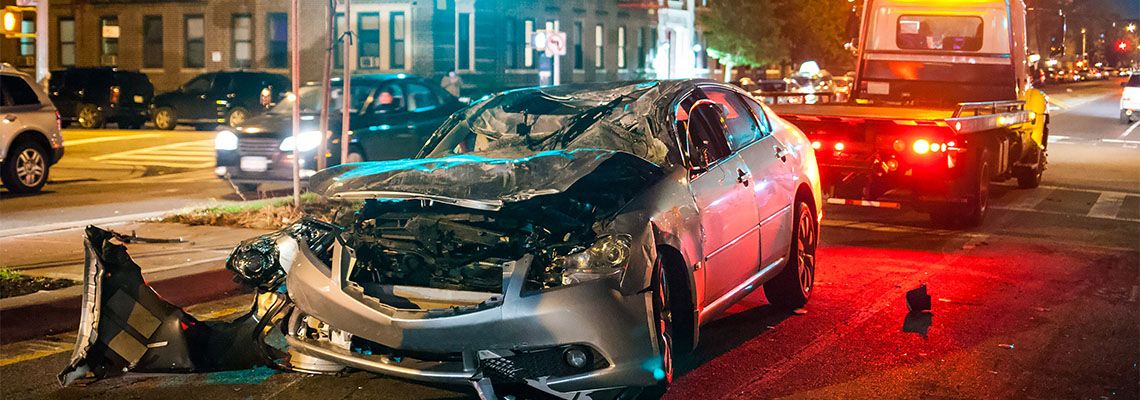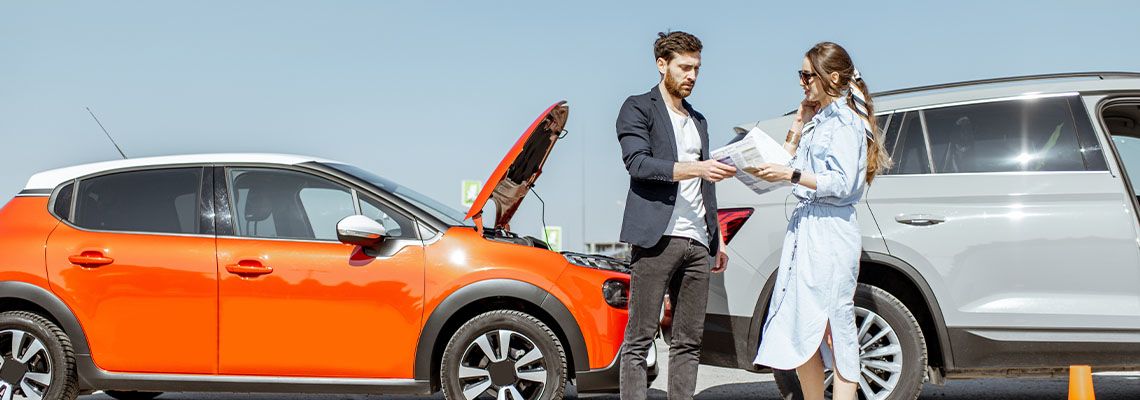When a collision with a commercial truck turns life upside down, the shock doesn’t fade quickly. Injuries can be severe, medical bills pile up fast, and work may suddenly feel out of reach.

When Is a Car Manufacturer Liable for an Accident?
Accidents can be life-altering, leaving you with injuries, stress, and financial burdens. But what if the accident wasn't your fault? What if it was due to a defect in your car? When is a car manufacturer liable for an accident?
These questions are critical for anyone who drives, and we're here to answer them. Read on to get valuable insights into car manufacturer liability so you can protect your rights and get the compensation you deserve.
Why Manufacturer Liability Matters
Determining fault in an accident involving a defective car is complicated. It’s not just about who was driving; it's about what they were driving. If a manufacturer’s negligence results in a defect that causes an accident, they can be held accountable.
This accountability ensures that manufacturers prioritize safety and quality in their manufacturing processes. It also provides victims a means to seek compensation for medical expenses, loss of income, and other damages. Ultimately, holding manufacturers liable helps improve overall vehicle safety standards, benefiting all drivers.
What Constitutes a Defective Car?
Here are some common types of defects that can make a car manufacturer liable:
Design defects: These are flaws in the car's design that make it inherently unsafe.
Manufacturing defects: These occur during the production process and may affect only a few cars in a batch.
Marketing defects: These involve improper instructions or failure to warn consumers about potential risks.
Faulty components: These include malfunctioning parts like brakes, airbags, or steering systems that can fail unexpectedly and lead to accidents.
Software defects: With the rise of automated and electronically controlled features, software bugs can cause critical systems to malfunction.
Failure to comply with safety standards: Cars that do not meet regulatory safety standards can pose significant risks to drivers and passengers.
Common Examples of Car Defects
Defects can range from minor issues to severe problems that compromise safety:
Faulty brakes that fail to engage properly.
Airbags that fail to deploy during a collision.
Tires prone to blowouts.
Malfunctioning seatbelts.
Steering system failures that cause sudden loss of control.
Electrical system issues that could lead to unexpected car shutdowns.
Fuel system leaks that pose a fire hazard.
Identifying a defect in your car isn't always straightforward. Look out for unusual noises, warning lights, or performance issues. Regular maintenance and inspections can also help spot potential problems before they lead to accidents.
Establishing Manufacturer Liability
To hold a car manufacturer liable, specific legal criteria must be met:
The car had an unreasonably dangerous defect.
The defect existed when the car left the manufacturer.
The defect caused the injury while the car was being used as intended.
The plaintiff suffered actual damages or losses due to the defect.
There were no substantial changes to the car after it left the manufacturer that contributed to the defect.
The manufacturer failed to provide adequate warnings or instructions regarding the use of the car or its components.
The defect was present even when reasonable steps were taken to maintain the vehicle.
Expert testimony or evidence supports the presence and impact of the defect.
Comparable incidents or recalls may indicate a history or pattern of defects in the same model or component.
Burden of Proof
In a liability case, the burden of proof lies with the plaintiff. This means you'll need to demonstrate that the defect directly caused the accident and your injuries. Gathering evidence, such as expert testimonies and accident reports, is vital.
Role of Recall Notices
Recall notices play a significant role in liability cases. If a manufacturer fails to issue a recall or address a known defect, it strengthens your case. Always stay informed about recalls for your vehicle model.
Manufacturer Liability Laws in Missouri
Missouri has stringent consumer protection laws to safeguard drivers:
Statute of Limitations
In Missouri, the statute of limitations for filing a product liability claim is five years from the date of the accident. The clock starts ticking on the day the injury occurs or when the defect is discovered. Missing this deadline typically forfeits your right to seek compensation.
Exceptions may apply, such as cases involving minors or defects that were not immediately apparent.
Comparative Fault Rule
Missouri follows the comparative fault rule, which means that if you're partially at fault for the accident, your compensation may be reduced by your percentage of fault.
Under this rule, each party's degree of fault is assessed, and their compensation is adjusted accordingly. For example, if a driver is found to be 30% at fault for an accident caused by a defective vehicle, their compensation will be reduced by 30%.
This rule distributes liability fairly and encourages responsible driving behavior while still allowing for recovery in cases involving product defects.
What to do After an Accident Involving a Defective Car
Your immediate actions after an accident can significantly impact your case:
Seek medical attention: Prioritize your health and get checked by a medical professional.
Document the scene: Take photos and gather witness statements.
Report the accident: File a police report and notify your insurance company.
Preserve evidence: Preserve any car parts that may indicate a defect and keep all repair and maintenance records.
Consult an attorney: A personal injury attorney specializing in product liability can evaluate your case and recommend the best course of action.
Keep detailed records: This includes all communications, expenses, and documents related to the accident, including medical bills, repair costs, and correspondence with your insurance company and legal representatives.
Common Defenses by Car Manufacturers
Here are some common defenses car manufacturers employ to reduce or dismiss their responsibility in a liability claim:
Denial of defect: Manufacturers may argue that the car was safe when it left the factory and that any issues arose from improper use or maintenance.
Blaming the driver: Manufacturers might claim that the accident resulted from driver error, not a defect.
Challenging evidence: Manufacturers may challenge the evidence presented, questioning its validity or relevance.
Misuse of the vehicle: Manufacturers might argue that the vehicle was used improperly, causing a defect or accident. They may claim the car was stressed or mishandled, blaming the driver instead of the manufacturing process.
Third-party fault: Manufacturers may claim that a third party, like a mechanic or parts manufacturer, is responsible for the defect due to improper repairs, maintenance, or modifications.
Meet With a Car Accident Lawyer
At SJP Sifers Jensen Palmer, we firmly believe that combining experience with integrity yields excellent results. Our courtroom victories reinforce this conviction. We pride ourselves on being attentive, approachable, and results-driven, giving you the personalized attention your case deserves.
At every step of the legal process, our attorneys will advocate for you, keeping your best interests at heart. Whether you're dealing with a debilitating injury or facing financial hardships after an accident, we will work tirelessly to secure your compensation.
Call today to schedule a consultation. Located in Kansas City, Missouri, we serve clients throughout Springfield and the Kansas City Metropolitan Area.
RECENT POSTS
Few situations feel more frustrating than filing a property damage claim in good faith, only to receive a denial letter. After paying premiums for years, many policyholders expect their insurance company to step in when damage occurs. Instead, they’re often met with confusing explanations, partial denials, or outright refusals.



